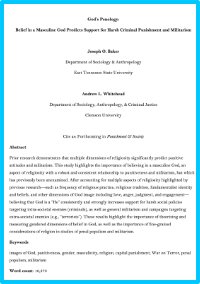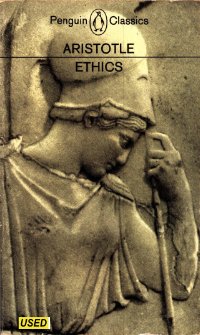By Tel Aviv University and the Anti-Defamation League (ADL),
In the aftermath of the October 7 war crimes committed by Hamas, the world has seen the worst wave of antisemitic incidents since the end of the Second World War. This Report is a messenger of bad news. The data collected from law enforcement authorities, governmental agencies, Jewish organizations, and media platforms tell a story of Jewish existence under growing threat. Particularly alarming is that also in the nine months leading to October 2023, in which no exceptional event happened, most countries with significant Jewish populations saw a rise in the number of antisemitic incidents compared to the same period in 2022, including the United States, France, the United Kingdom, Australia, Italy, Brazil, and Mexico. This means that the war in Gaza helped spread a fire that was already out of control. And it was already out of control despite the significant efforts invested in recent years by governments on educational and legal initiatives aimed at reversing the trend. Two years ago, this Report stated that the fight against antisemitism was failing. The data from 2023 show that bad has come to worse. It is time for soul searching. More slogans and more speeches will certainly not do the job. It is equally naïve to think that more budgets will solve everything. There is a need for careful, independent, and transparent studies of the methods applied so far to inform which are effective and which are not, which need to be expanded, and which should be neglected. The obvious must be mentioned: As in the case of any social evil, the test for programs applied against antisemitism is whether they lead to a decline in the phenomenon. The distress and danger Jews currently experience should not be overstated. This is not 1939, let alone 1942, not anywhere. Yet while being attacked or harassed has not been the experience of most Jews outside Israel, the data indicate that if current trends persist and continue to deteriorate, the curtain will descend on the ability of Jewish identities to be manifested with security and freedom in the West. The severe nature of the crisis should be duly recognized by governments and law enforcement agencies. There is no good racism and bad racism, racism that can be ignored and racism that cannot. Racism directed against groups considered socially strong is as destructive as any other form of racism. No society can be truly free and peaceful if its Jews are subjected to intimidation and harassment based on their ethnicity and beliefs. October 7 highlighted how poisonous antisemitism is. While antisemitism does not define the ideology of Hamas, it has been, from its inception, an inseparable part of Hamas’ dehumanization of Jews and its depiction of the war against Israel in ahistorical, essentialist binary religious terms. The reactions to Hamas’ crimes reveal how deep-seated antisemitic narratives have become across the Muslim world. Analyses in this Report demonstrate their spread across Arab societies (p. 47) as well as in Turkey (p. 59) and Iran (p. 73). As a conspiracy theory, the oldest in history, antisemitism is a sickness that blinds those who consume it from seeing the truth for what it is and from respecting the humanity of others. An important lesson to draw from the Gaza war is that peace in the Middle East will not be achieved unless antisemitism is firmly uprooted from Arab societies. Demanding actions to that effect should become fundamental in all future diplomatic processes. Social media is a primary tool in the present-day proliferation of antisemitism. It allows extremist evil-wishers to spread falsehoods, defamations, and conspiracy theories without being held accountable. No significant improvement in the fight against antisemitism will be accomplished unless those who provide platforms for hate speech will be made to apply responsible editorial discretion, including such that hinders the abuse of social media by global agents of chaos. A comprehensive study conducted for the Report on the profiles of the conveyers of antisemitic propaganda on X (formerly Twitter) in English, Arabic,
and German, as well as the contents of their messages (p. 99), highlights the need for more profound and meaningful treatment of the problem. One of the biggest challenges presented by contemporary antisemitism is that it is expressed by the extreme right and the extreme left and that both expressions increasingly encroach on the mainstream. This phenomenon is particularly evident in the United States (p. 35). It makes the choice of allies and priorities more difficult. Being between a rock and a hard place should not lead to despair, though; Jewish communities and organizations need to tirelessly reach out for broader alliances and cooperation with those committed to righteous causes. While antisemitic activists often emphasize their problem is with Israel and not with Jews, some target Jewish individuals, institutions and symbols. There is only one name for such actions. It is tempting to treat the post-October 7 antisemitic wave as an emotional response to the war and the catastrophe it brought on a civilian population which Hamas has been using as human shields. That, however, is simply not the case. Some of the most outrageous antisemitic expressions in the context of the conflict were articulated in the first days following October 7, before Israel had begun its military campaign. Criticizing Israel, including in harsh terms, is not antisemitism. Seeking its elimination as the national home of the Jewish people, including through the false argument that it is an unlawful colonial enterprise, is antisemitic. The historical facts are that the Land of Israel is the ancestral homeland of Jews, where they maintained a continued presence, and where, with the rise of Zionism, they purchased the lands on which they settled and were given the right to a state by an overwhelming majority of the UN General Assembly. Those who believe that all the above does not make Israel in its recognized borders a legitimate state, should realize that unless they come up with a good explanation why their historical-moral criteria apply to Israel only, they will not avoid the label they try to disavow. The rise of populism across the Western world presents the fight against antisemitism with uneasy dilemmas. How should populist leaders, who are philosemites and pro-Israel, be treated if their movements host antisemites, have neo-Nazi pasts, or distort the history of their nations? To what extent can the fight against Jew-hatred be blind to hate directed against other minority groups and remain morally credible? A special section of the Report (p. 77) analyzes the reasons for the ascendance of populism and its potential implications for Jews, with special attention to Germany and the Netherlands. At the beginning of 2023, the Chief Rabbi of Moscow in exile, Pinchas Goldschmidt, warned that Jews should leave Russia before they are scapegoated. These were words of wisdom from a courageous spiritual leader who knows the Russian regime and Russian history well, and who refused to support the failed military aggression and the crimes against humanity committed against Ukraine. Sadly, Rabbi Goldschmidt has not been disproven. During 2023, the Russian dictator Putin and senior members of his regime made blatant antisemitic attacks and continued to engage in Holocaust distortion as part of their broader campaign against the liberal West, liberal values, and human decency. Russia has also supported Hamas in its war against Israel (p. 55). Fascists and Jew-hatred are twains that often meet, especially in times of crisis, and the future risk for Russian Jews should be recognized. Following October 7, antisemitic propaganda also spread in places from which it had been largely absent in the past, including China. In a country like China, the spread of antisemitic content online can hardly occur if the regime objects. China prides itself, and rightly so, for taking part in the rescuing of thousands of Jews in the Holocaust when few others did. That legacy should not be stained. The regime should make a clear stand against antisemitism, as well as call Islamist terrorism by its name. Since October
7, across the Western world, some Jewish parents have been afraid to send their children to school. The sense of security in some Jewish communities has been undermined, including in socially peaceful countries with a passion for human rights, such as Scandinavia (p. 65). In France, home to the largest Jewish population in Europe and the largest in the world outside Israel and the United States, Jewish intellectuals and Rabbis express uncertainty that their children and grandchildren will enjoy the same security, freedom, and sense of belonging they had (p. 27). The troubling developments discussed in this Report call for contemplation – and for action. Four of the global leaders in the fig (continued)
Tel AvivThe Center for the Study of Contemporary European Jewry at Tel Aviv University , The Irwin Cotler Institute at Tel Aviv University , Anti-Defamation League, 2024. 148p.






















